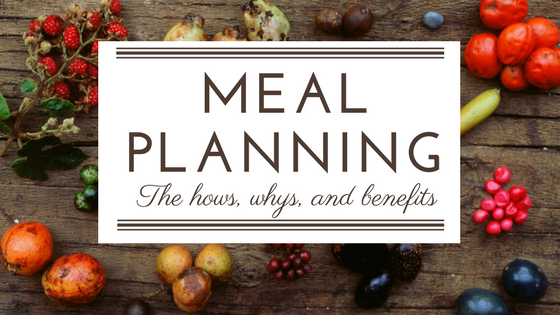Meal Planning, Benefits, How-to's and Whys
This post contains affiliate links.
Hey, everyone! I hope your summer is going well. It has been so hot here in Louisiana, that it I'm actually happy that it's overcast today.
 |
| Lousiana in the summer. |
Anywho, as the summer starts to wind down, a lot of us are looking at a major shift in our schedule once August rolls around. For some of us that means that our children are headed off to school, or maybe you're headed back to school, work may pick up more, and we are all looking at more traffic in the morning.
When life gets busy like this it can be very difficult to continue to eat intuitively, because of all the external noise that we have to listen to. Sometimes this leads us to not eating all day until we get home for dinner, or it may lead some of us to grab some ramen noodles to microwave.
This is where meal planning can really help. It is usually done in weekly increments though if you go shopping monthly or daily it can be adjusted for that as well. I do weekly meal planning. Not only does it help set your intention for the week, it makes it one less thing to think about daily and it's going to help streamline your grocery shopping which should help you to save money.
It doesn't have to be complicated either. The biggest mistake I made when I first tried out meal planning was trying to have a different dinner planned for every day. Trying that is going to lead to a ginormous grocery bill, and a TON of food waste (especially anything that involves cilantro, which almost every recipe does, and it is only sold in huge portions, so I always end up throwing some out). But I have found a way that is working for me and my family size right now. My family size is of two right now (my husband and me) but these guidelines will give you a good jumping off point to start with your own meal planning.
 |
| The lifecycle of 90% of all the cilantro I've purchased |
Needless to say, rule number one is, do NOT plan a different meal every day. Try to account for left overs (if you are making a dinner that has 8 servings, but is only feeding 4, that's a least one day of left overs), and for days where you eat out, or order in. Right now I only plan for three different dinners a week. Two of those dinners are single servings (which means that it will only serve two of us), and one that will produce left overs. This helps reduce food waste, and it also helps prevent your fridge filling up with a bunch of left overs.
Next, try to make breakfast and lunch the same thing (at least for the week). This helps take the guess work out of busy mornings, and business days. I prefer breakfasts that I don't have to cook, so I typically will have a meal replacement bar of some sort. Like the Lenny & Larry's cookies that I am so fond of.
Now some people plan their snacks, but I don't, I try to make sure I get a fancy cheese (aka the kind I buy at the front of Wal-Mart no the kind that I buy from the shredded cheese section), a protein (typically turkey deli slices) and a fruit (especially since it's summer and the watermelon is rocking). But if you have children or a schedule where you are out of your home a lot planning your snacks may be beneficial to you.
If you do have children that are old enough to pick out what they want at the store, having them help you meal plan can help prevent random last minute add-ons when you are out. It can be a great way to introduce intuitive eating to by asking your child what they really feel like having that week, instead of impulsive decisions when they get bombarded by brands at the store.
Finally, meal planning does NOT need any fancy equipment. You can meal plan on your phone, computer, a piece of paper, or even just in your brain (if that's your thing). I like to use the Knock Knock What to Eat Pad
 |
| Nothing fancy, seriously |
I hope this helps give you the confidence to start meal planning on your own! Do you have any tips or suggestions for meal planning? Tell me in the comments below!



Great tips! I've been meal planning for years simply because it keeps a busy day simple- much easier to grab something already made than it is to think and create!
ReplyDeleteThanks Shelby! I completely agree. If it wasn't for meal planning I would be surviving off of pizza rolls!! LOL
Delete